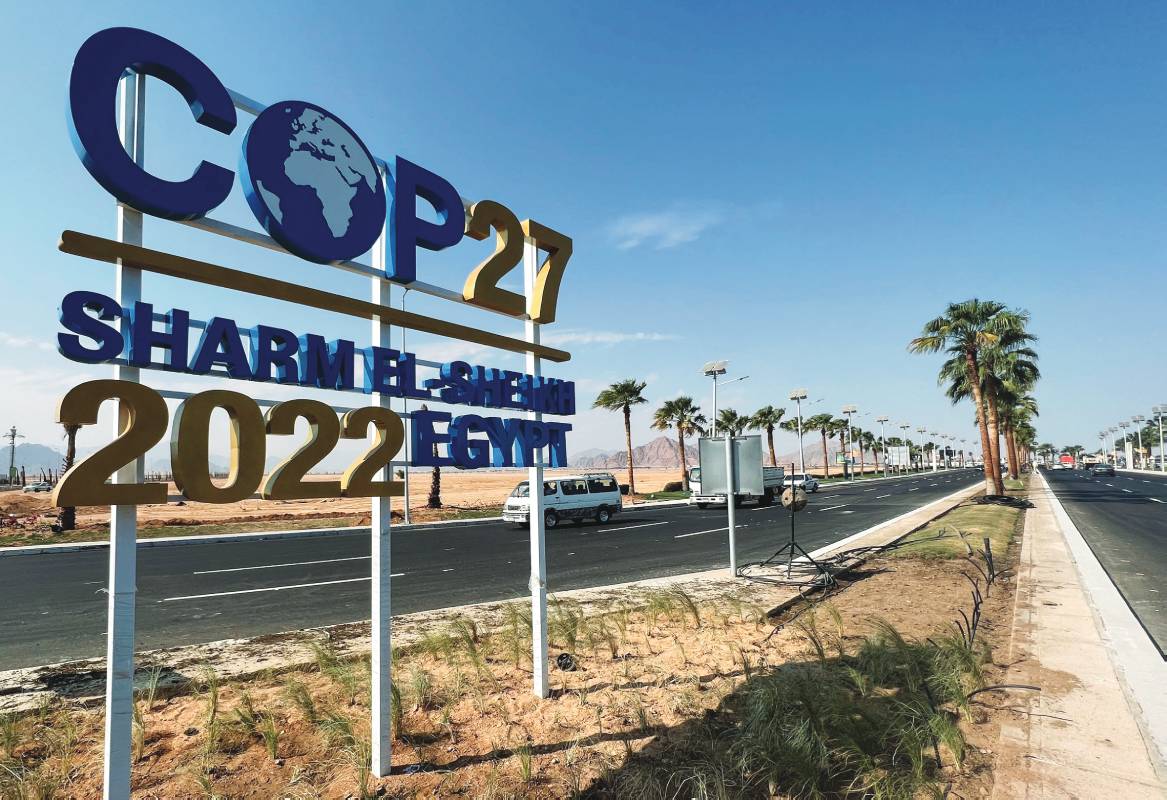The world’s crawl towards comprehensive action to combat climate change continues. Early on Sunday, after days of deliberations, negotiators at the COP-27 summit in Sharm-el-Sheikh, Egypt appeared to have reached a tired agreement that sets up a Loss and Damage fund to help poor countries battered by climate disasters but left to next year the knotty question of who will contribute to it.
The devil is in the details, but those details will have to wait for another day. The summit was unable to adopt tougher measures on emissions reductions, and there were suspicions that a reference to “low-emissions energy” might on the contrary facilitate the use of more natural gas, a fossil fuel that leads to both carbon dioxide and methane emissions. India will be disappointed that a suggestion made by it to phase down the use of all fossil fuels was not considered. The frustration of many others was palpable.
Advertisement
“Too many parties are not ready to make more progress today in the fight against the climate crisis,” the EU climate policy chief Frans Timmermans said. He said the deal was “not enough of a step forward for people and the planet.”
German Foreign Minister Annalena Baerbock was even more forthright, when she said, “It is more than frustrating to see overdue steps on mitigation and the phase-out of fossil energies being stonewalled by a number of large emitters and oil producers.”
Other leaders too were pessimistic, saying the deal didn’t raise many ambitions. Yet the relief seemed to stem from the fact that there was a deal at all, and at least seemed to begin addressing the question of mitigation. When it began, COP-27 had promised to flag the plight of poor countries that are facing the most severe consequences of global warming and those that face extinction because of rising sea levels.
This promise remains largely unfulfilled; what these countries seem to have got is a vaguely worded promissory note that could easily be finessed into extinction by wealthier nations that are facing the pressure of war in Europe, volatility in the energy market, and huge inflation.
But the poor must settle for crumbs, and some even seemed relieved that they had got these. The announcement to set up a Loss and Damage Fund is historic, no doubt. But as one climate activist pointed out, the fund is currently empty. Activists saw in the absence of commitments on fossil fuels, the insidious hand of hundreds of fossil fuel activists who were active in the negotiations.
As Lidy Nacpil of the Asian Peoples Movement on Debt and Development, put it, “this win (of a fund) is overshadowed by lack of progress on fossil fuel phase-out and the continued inclusion of false solutions, which means more loss and damage! Lack of progress on fossil fuel phase-out shows the hypocrisy of governments of rich countries in their blah blah blah about keeping global temperature rise to below 1.5 degrees and the corporate capture of the Cop by the fossil fuel industries.”











